11 types of dental health specialists
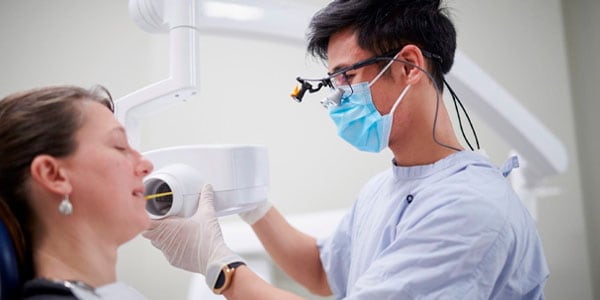
As a child, did your grandparents use their tongues to wiggle their dentures at you, making you laugh? While dentures might have been an expected outcome for previous generations, these days more and more people are keeping their natural teeth for longer – and that means needing extra support to keep our teeth healthy and strong throughout life.
Thankfully, the dental profession has evolved to embody a range of skilled experts to help us do just that. Here is what each dental specialist does to help you take care of your teeth.
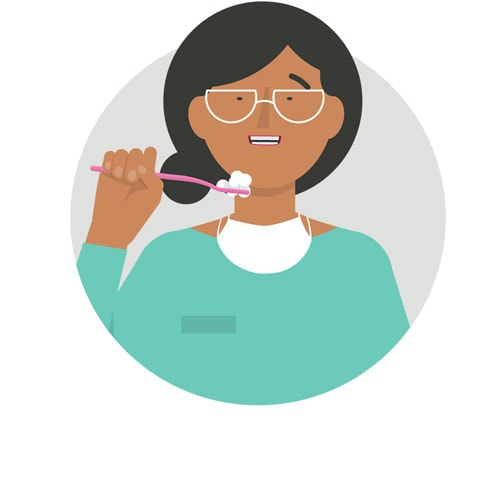
What does a dentist do?
Dentists focus on prevention, diagnosis and treatment of conditions affecting the teeth, gums, mouth and jaw. If you don’t know which dental professional you need to see, a dentist is your first port of call for a check-up.
“A dentist performs restorations and treatments like placement of crowns, veneers and bridges, root canal treatments, implant treatments and extractions of adult teeth. Dentists can also maintain and replace missing dentures,” explains Dr Mikaela Chinotti from the Australian Dental Association.
What does a dental assistant do?
Most dental treatments require the hands-on support of a well-trained dental assistant.
“Dental assistants work as a multi-skilled member of the dental team, often balancing working reception, scheduling appointments, and handling payments and receipts with clinical tasks like sterilising instruments and assisting your dentist chairside,” says Peter Sandyford, HCF Dental and Eyecare General Manager.
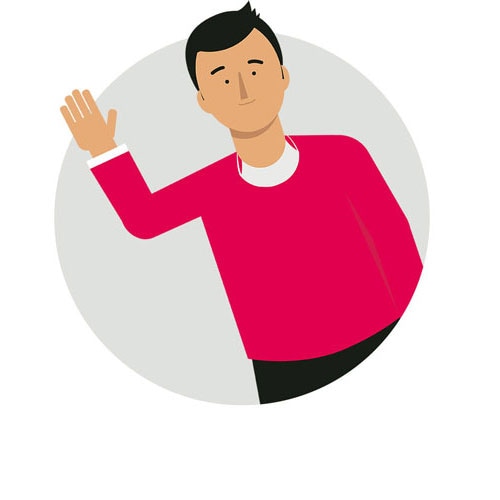
What does a dental technician do?
Dental technicians use impressions of the mouth and teeth to make veneers, crowns, bridges and splints (for people who grind their teeth).
“Dental technicians design braces and plates, make mouthguards, and polish and finish other dental devices,” explains Peter.
What does a dental hygienist do?
As the name suggests, dental hygienists help to keep your teeth clean and healthy – and ultimately prevent dental disease. Educating people about oral health is a big part of their job.
“Dental hygienists give patients advice to motivate and instruct them on how to maintain their oral health. They work as part of the dental team to decide on treatment for each patient, but work independently in delivering their clinical services,” says Peter.
Dr Chinotti adds, “People might see a dental hygienist for the regular scale and clean of their teeth or, if they have more severe gum disease [periodontitis], they might see the hygienist more regularly.”
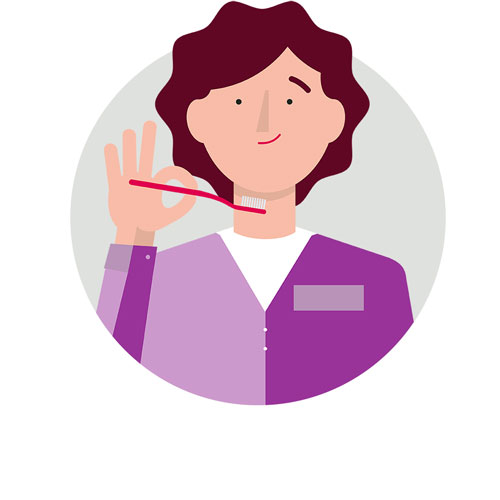
What does an oral health therapist do?
An oral health therapist is qualified in both dental hygiene and dental therapy, Peter says. They’re registered oral health practitioners who look after both children and adults.
“This includes examining and diagnosing dental decay and gum diseases, and performing routine dental treatments and preventive dental services for the wider community.”
What does a dental prosthetist do?
Dental prosthetists are registered, independent professionals who assess, treat and manage false teeth and dentures, “to replace either part teeth or whole teeth that have been lost”, explains Dr Chinotti.
They take moulds and create customised mouthguards and dentures.
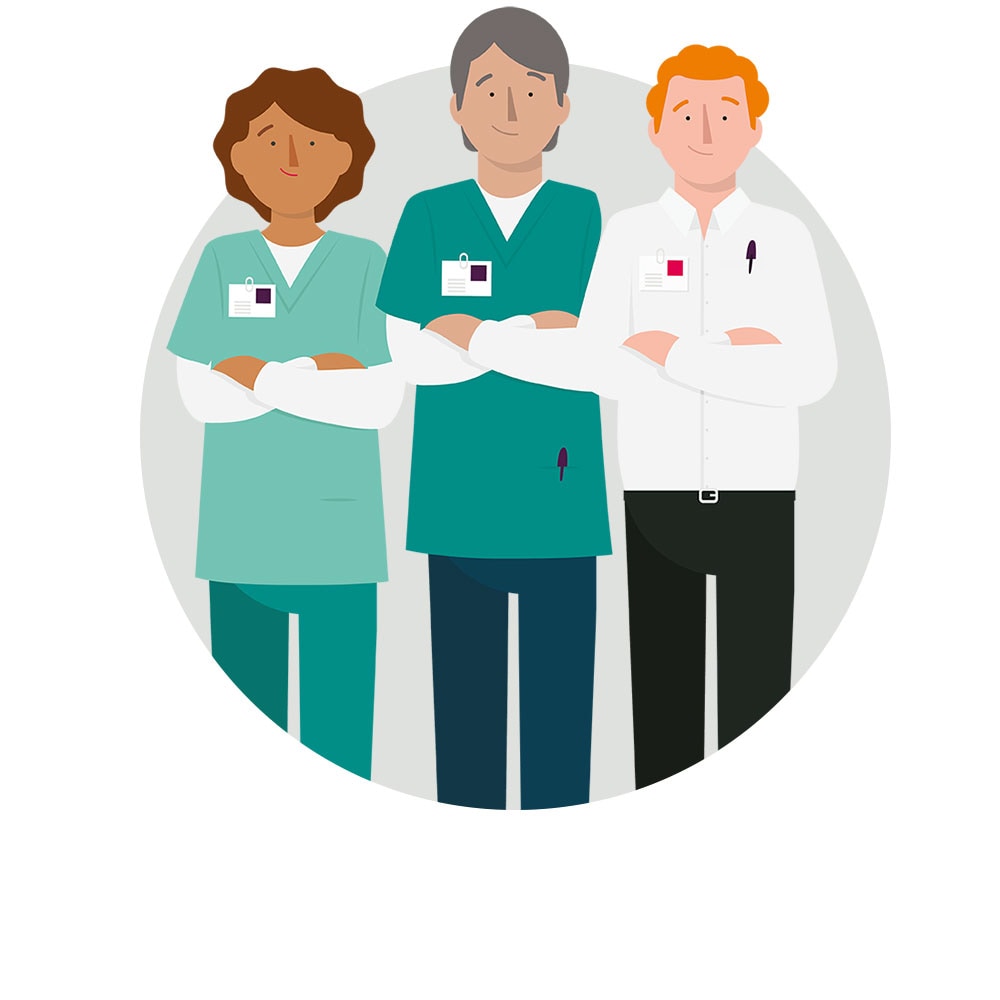
Types of dental specialists
Sometimes a dentist will refer you to a specialist. The Australian Dental Association explains what they do:
- Orthodontist: dentists who specialise in the area of dental and facial irregularities. Their work is mostly focused on correcting crooked teeth, like with braces, as well as misaligned jaws and bites.
- Oral and maxillofacial surgeon: their duties include removing problematic wisdom teeth, jaw realignment and facial reconstructive surgery.
- Periodontist: specialists who treats gum disease and conditions affecting the jaw bones and soft tissue, including doing implants and grafts.
- Endodontist: professionals focused on diseases affecting dental pulp (the vessels, tissue fibres and nerves that keep a tooth alive), root and root tissue.
- Prosthodontist: experts in tooth restoration work including crowns, bridges, dentures and implants.
Get 100% back on preventive dental services
Members on eligible extras cover can get 100% back on preventive dental services at HCF Dental Centres and providers in our No-Gap network (depending on level of cover and available limits).
This includes at least one annual check-up, scale and clean, and fluoride treatment. To see if you’re eligible visit hcf.com.au/100back or call 13 13 34.
HCF Dental's opening hours and services are currently impacted by COVID-19 lockdown restrictions. Find out more at our service updates page.
Related articles
DAY HOSPITALS AND ELECTIVE SURGERY
Day hospitals offer specialist services that may be an option for your surgery.
HEALTH INSURANCE AND OUT OF POCKETS
A conversation with your doctor can help you avoid out-of-pocket costs.
IT’S OKAY TO GET A SECOND OPINION
Seeing another health professional can be reassuring and help you make informed decisions.
AVOIDING UNEXPECTED DOCTOR’S COSTS
Understanding doctors' fees and charges is the key to avoiding bill shock.